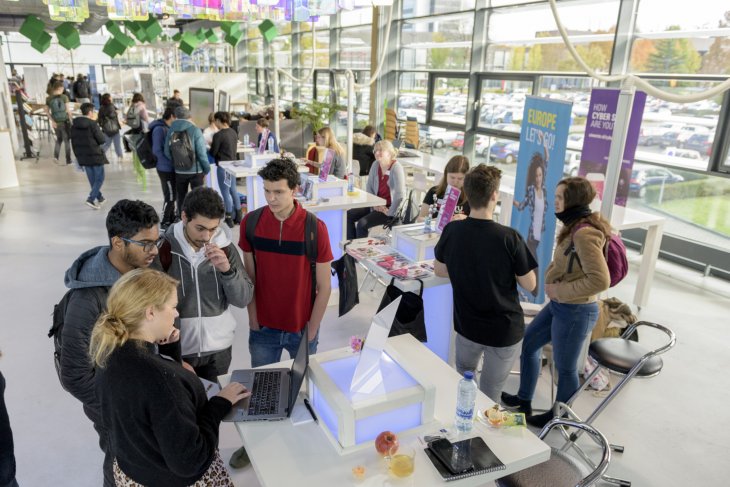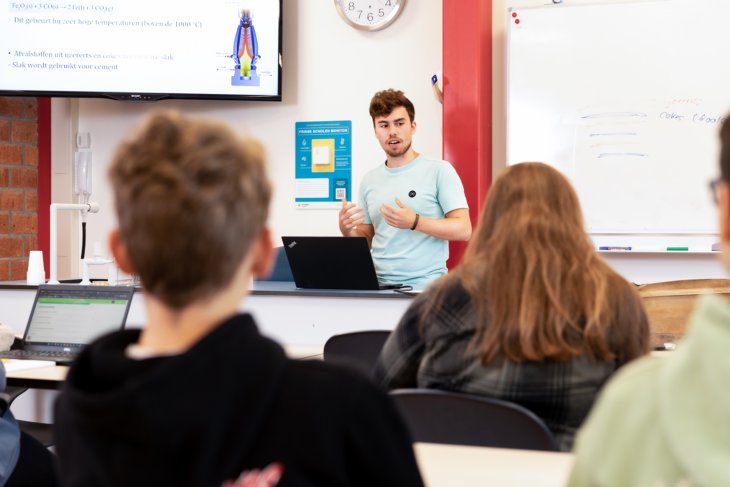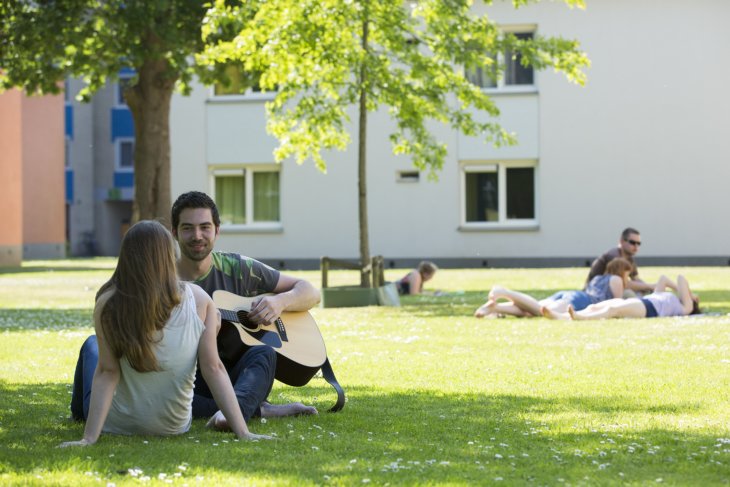1. Minor
In your elective space, you get the opportunity to personalise your bachelor's and add knowledge and skills that you find valuable. You can use this space to deepen your knowledge and specialise in a specific field within your programme, or you can broaden your knowledge and follow subjects or a module from another programme/field of study. Perhaps you are studying Technical Computer Science and want to completely immerse yourself in the world of ESports, or you are interested in innovation and entrepreneurship as a Communication Science student. Or you might want to dip your toes into the field of AI as a Mechanical Engineering student.
Whatever your interest, the University of Twente offers a wide range of minors. A minor is a package of courses of (usually) 15 EC. In most bachelor's programmes, the free elective space covers half a year. This means that you can fill this space with two minors. Check out the list of minors offered by the University of Twente on our website.
Please note: would you like to register for a minor for the first semester of 2024-2025? The registration period is from 25 March to 31 May 2024.
Rather take courses at another university? That is also possible, both at other universities in the Netherlands and at (partner) universities abroad!
2. Internship
Working on various real-life projects during your bachelor's is one thing, but do you want to know what the professional field is really like? An internship is the perfect way to gain hands-on experience and put your acquired knowledge and skills into practice. Not only will you gain more field-specific knowledge, but you also get to work on your soft skills - and these are indispensable in your future career. For instance, how do you work together in groups? How do you deal with problems? And how inventive and entrepreneurial are you?
During an internship, you get to know yourself in a different way - and the work field as well. This way, an internship can be a good opportunity to find out where you want to go with your career. Does the type of organisation suit you? And what kind of position do you see yourself fulfilling in the future? Perhaps you had a clear picture of your future career in mind all along, but in practice, it turns out to be different from what you expected. Then you still have plenty of time to adjust and find what really suits you.
3. A semester abroad
Want to spend part of your studies abroad? Good idea! An international experience is valuable for several reasons, both personally and professionally. You meet new people, get to know other cultures, grow in your independence and autonomy, and it also looks good on your CV. You can even learn a new language! Countless UT students have gone before you.
Does an experience abroad sound like something for you? Then you have several options in your elective space. You can do an internship abroad, or go on an exchange and take courses at another university. The University of Twente has exchange agreements with more than 300 partner universities in over 50 countries, including Australia, Belgium, Brazil, Finland, France, Italy, Japan, Mexico, Portugal, Spain, South Korea, Sweden, the UK and many more. You can also follow the minor 'Crossing Borders'. In this, you work on a project in an international setting, for example in a field study or internship at an organisation abroad, or at an organisation in the Netherlands with international partners.
Instead of filling your elective space with an experience abroad, you can also choose to do your graduation project abroad. More information about your options abroad can be found on this website.
4. Prepare for a master's with a transfer minor
As you progress in your bachelor's, you may already be thinking about your next step. Will you continue with a master's programme, and if so, which one? Does this master's connect directly to your bachelor's, or is the master's in a slightly different field or university? In the latter case, you might lack some knowledge - and you may have to complete a pre-master's before being admitted.
If you want to continue in a (slightly) different field of study after your bachelor's, it might be smart to start your preparations already in your elective space. You could follow a transfer minor, for example! In that case, you follow the pre-master's programme - but then as a minor. Could be the perfect solution, since it will save you time and money. More information on taking a transfer minor can be found on this website.




